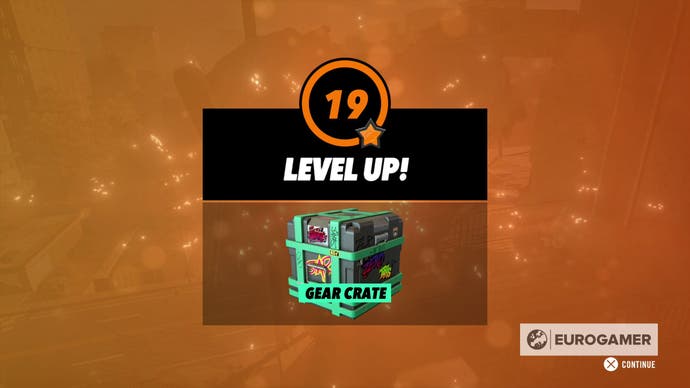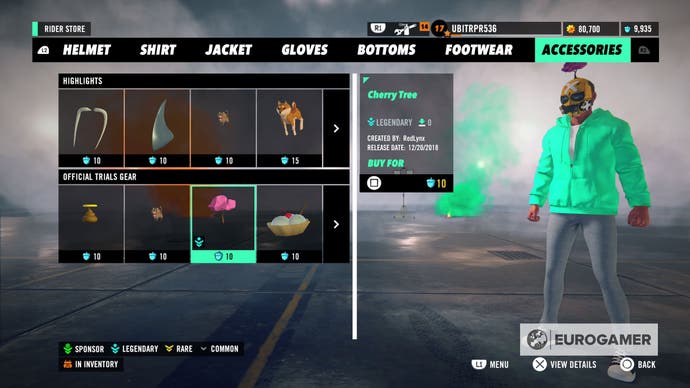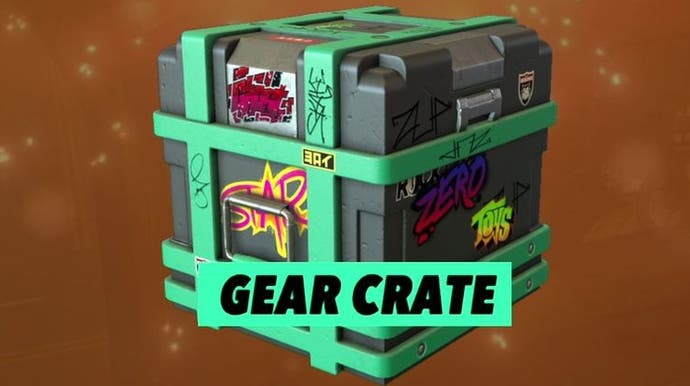What's the deal with Trials Rising's microtransactions?
Loop-de-loop boxes.
Last year, it was revealed loot boxes will be coming to Trials Rising. It was surprising to see a series which prides itself on player skill yield to any kind of in-game monetisation, even if they are purely cosmetic, especially when the industry has appeared to turn tail on such practices.
So how do Trials Rising's microtransactions work? At a recent press event, each time you levelled up in the campaign you are rewarded with a loot box - known as a 'Gear Crate' - giving you a random assortment of cosmetic items, including new outfits, bike liveries, stickers and racer poses.

If you don't want what's inside, you can spend in-game currency (earned from completing events across the game) to reroll the contents of the loot box, allowing you to try again. Additional Gear Crates can also be purchased with in-game currency.
You can also unlock items directly from a marketplace using both the in-game currency and Trials Rising's premium currency, Acorns, which is bought with real-world cash. This is used to get items faster, though everything in the base game will be available without using them.
"Our team's philosophy is to create a system that is fair for all players," said Ubisoft in a statement to Eurogamer. "In Trials Rising, all bikes and tracks that ship with the game will be unlockable through in-game progression, ensuring that all players are on equal footing as they strive for glory and leaderboard status."

Meanwhile, the game's marketplace allows you to sell any items you've customised to other players. Doing so gives you in-game currency (and not Acorns) for your work - the developer doesn't "take any cut", said RedLynx co-founder Antti Ilvessuo - with the fee determined by the rarity of the base item and whether the buyer has unlocked it themselves.

"It gives more value for people who have spent lots of time making stuff," Ilvessuo explained when asked why players couldn't simply download items from other players freely.
"Also, you cannot have that [item easily] if you haven't progressed enough. If you see unique stuff, you can not only appreciate someone has made it, but also that they have played a lot of the game."
When it comes to customisation, though you cannot alter the geometry in the same way you can a game like Soul Calibur 6, the ability to add 200 layers of stickers - all of which can be independently coloured and scaled - suggests a healthy amount of creativity.
The reason for all of this, it seems, is because personalisation and making an impression in other people's games is far more baked into the game than any Trials before it.
Your racer will pose in multiplayer lobbies before a race, for example, while your time trial ghost will wear the garb you've given them, letting you stand out from your peers. (Don't worry, the transparency and appearance can be dialled back if ghosts prove too distracting.)

While there is nothing wrong with players being able to change and customise their appearance (games like Fortnite are certainly enriched by it) with the game highlighting multiple currencies and loot boxes throughout its progression and menu screens, there is a worry Trials Rising - which otherwise looks to be a very welcome return for the series - might be defined by them. The balance of the marketplace prices and the way progression works will, ultimately, determine by how much.
Trials Rising will be available on PS4, Xbox One, PC and Switch - with cross-platform support for leaderboards and ghosts - from February 24th.






